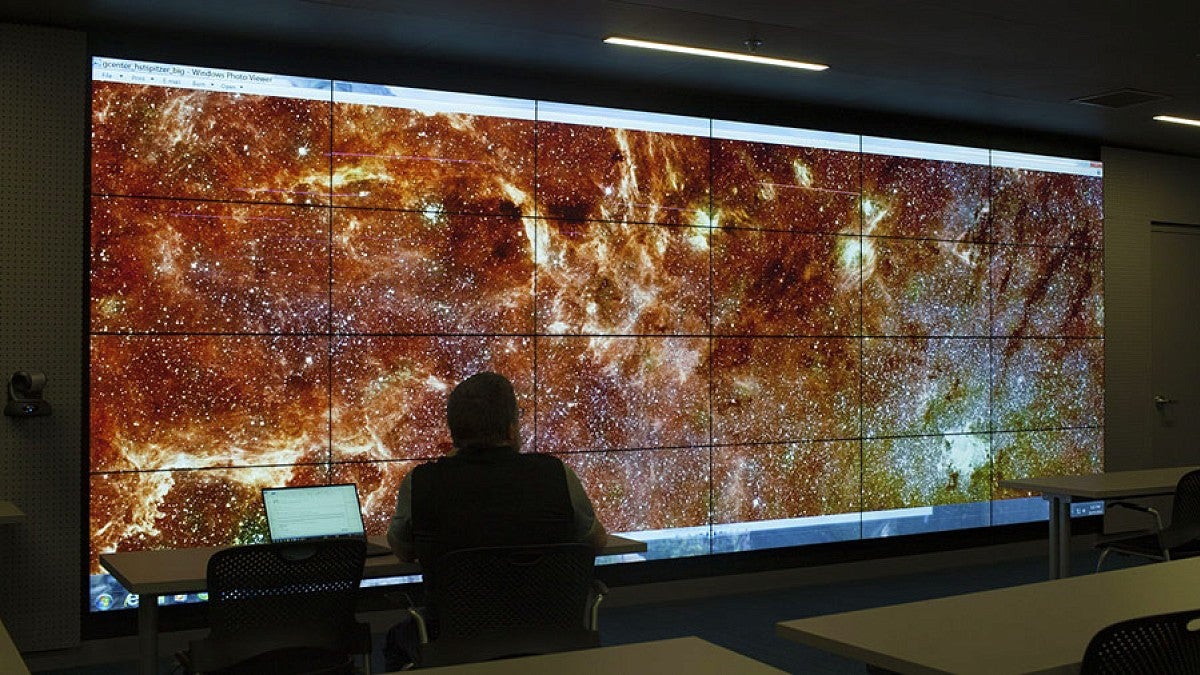The University of Oregon is launching a new interdisciplinary initiative in data science and tapping one of its top researchers, biology Professor Bill Cresko, to lead its development.
President Michael Schill announced the initiative at the September meeting of the UO Board of Trustees.
The cross-disciplinary effort will bring together existing faculty members and recruit new ones across schools and colleges to create new educational, training and research programs at the UO and will be integral to the Knight Campus for Accelerating Scientific Impact. Over the long term, it could also lead to new degree programs for students.
“Like all good academic ideas, the initiative bubbled up from our faculty, deans and department heads,” Schill said. “Ramping up the UO’s capabilities in data science responds to the increasing demand among employers and our researchers in diverse fields for students and colleagues who can manipulate data to extract information about trends and populations. It also will fundamentally strengthen our ability to help solve some of the world’s greatest challenges.”
Cresko added that data analytics is bringing huge changes in the ways the world is viewed.
“Big data is utilized in academic pursuits many people wouldn’t expect, from the sciences to the humanities to journalism and communication” he said. “We will need to consider large amounts of complex data to address nearly every issue we face as humans.”
Eight new data science faculty members will be hired this year as part of the UO’s Presidential Initiative in Data Science. They will be spread among the natural sciences, social sciences, business, and journalism and communication.
Each of the hires is listed in the 2017-18 Institutional Hiring Plan. Additional hires are expected to be made in future years as the initiative is built out.
“Data science has been heralded for advancing nearly every kind of intellectual endeavor,” Schill said. “It has the potential to help solve some society’s greatest challenges — everything from climate change and disease prevention to consumer behavior and economic policies. This is an example of the kind of research and curriculum development that will help raise the quality of the entire university.”
Schill told trustees that the UO is in a unique position to maximize the effect of an interdisciplinary initiative in data science because the UO already has significant strength among existing faculty. He also said the UO has “benefited from a lack of traditional barriers among fields. This permeability is generated by our small size and by the absence of separate schools of engineering and medicine.”
“The UO’s liberal arts approach to education will position us to take an innovative and interdisciplinary approach to understanding data science and turning it into actionable knowledge,” Cresko said. “Researchers from every school and college will work together to gather, analyze and understand data so it can be translated into material that will impact society.”
Provost Jayanth Banavar told the board that the university will work with faculty and the University Senate on how to institutionalize the effort, deciding issues such as whether to form a new department and what sort of degree programs will be established. Cresko will lead an advisory group to launch the initiative and connect the schools and colleges in the endeavor.
“This is a hugely important priority for us. There is going to be a lot synergy and excitement, and we want to make sure that our students ultimately benefit,” Banavar said. He noted that the board would vote on any new degrees and that approval also would be needed from the state Higher Education Coordination Commission.
A number of the trustees expressed enthusiasm for the new initiative. Chuck Lillis, the board chair, noted that there is a great demand and wonderful job market for students with a data science degree.
Laura Lee McIntyre, the new faculty trustee and a professor in the College of Education, said the program would be very important for the UO research engine, noting that many current federal grants are focused on big data.
—By Jennifer Winters, University Communications


